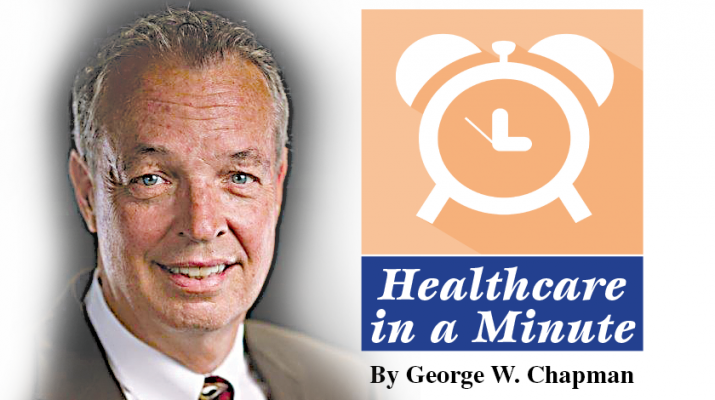By George W. Chapman
Since the outbreak of COVID-19 three years ago, the average length of stay (ALOS) in a hospital has increased 19% according to the American
Hospital Association.
It has increased 24% specifically for patients waiting to be transferred to a post-acute facility like a nursing home or psychiatric facility.
The increased ALOS for patients waiting to be transferred is due in large part to staffing shortages at post-acute facilities. These patients have been clinically cleared for discharge. They are literally lingering in hospital beds which in turn delays admissions from hospital emergency rooms. One possible solution to expedite the transfer process and alleviate this strain is to equip hospital beds with caster wheels. To learn more about how caster wheels can address these challenges, read more.
Consequently, patients are being treated in ER hallways due to lack of available beds.
Hospitals are asking Medicare and commercial insurers for relief.
Hospitals are not paid by the day or per diem. They are paid by DRGs (diagnostic related groups). Each DRG payment is based on acuity and procedure and an ALOS. The DRGs were established well before the pandemic. The AHA is suggesting a temporary resurrection of per diem payments, especially for those patients cleared for discharge but are waiting to be transferred to another facility.
While most nonprofit hospitals ran an operating deficit every month through October in 2022, the nation’s three largest for-profit systems reported healthy operating profits through the same period. HCA Healthcare was 11%; Tenet was 8%; and Community Health Systems was 1%.
Impact of the Pandemic
The United Health Foundation, affiliate of health insurance giant United Healthcare, just issued its annual report on the changes in our overall health from 2020 to 2021. There is very little good news. There was an 11% increase in people describing their mental health as “poor” and a 15% increase in people reporting they were in “frequent mental distress.” There was a 20% increase in drug-related deaths (28/100,000). There was an 18% increase in premature deaths (before age 75). There was a 13% increase in gun related deaths. The number of people with multiple chronic conditions increased 5%. While there was a 7% decrease in the uninsured, part of this gain may be lost if pandemic related insurance flexibilities and incentives expire in 2023. The “good news”? United’s profit was $17.3 billion in 2021.
CMS Demands Faster Authorizations
Nothing is more aggravating and frustrating to physicians and their patients alike than having to wait for an insurance company to approve what the physician has ordered to care for their patients. Prior authorization for designated procedures and drug referrals is required by insurers. Purportedly, It is a cost containment tool to deny ineffective or unnecessary drugs and procedures. Approval or denial can often take weeks, which delays care. Typically, 95% are approved anyway, so prior authorization is more of a cost delaying tool. Consequently, CMS has jumped in to speed up and improve the process. By 2026, Medicare Advantage plans, Medicaid Managed Care plans, and Affordable Care Act commercial plans on the insurance exchanges must implement electronic authorization, eliminating the labor- intensive paperwork seemingly designed to slow things up. There will be incentives for providers to implement this as well. The goal is to improve the patient experience, speed up the delivery of care, decrease patient anxiety and get frustrated providers out of the middle. Insurers must give specific reasons why something was denied within seven days.
Coalition to Improve Care
The Institute for Healthcare Management and the AMA recently announced the creation of the “Rise to Health Coalition.” Along with the American Hospital Association and Race Forward, advocates for reducing racial inequities if healthcare, the coalition will recruit providers, payers and drug manufacturers to share solutions on improving outcomes and expunging racial inequities in healthcare. The group will focus on access, workforce, cost, quality, safety and social determinants of healthcare (income, race, nationality, transportation, housing, unemployment, food insecurity and education). Each organization must also develop measurable reductions in inequities within their organization. The coalition has laudatory goals. It remains to be seen how much cooperation can be engendered between not-for-profit organizations and for-profit businesses.
Senate Exploring Mental Health Bias
The negative impact of the pandemic on our mental health is undisputed. The Senate Finance Committee is in the early stages of examining the inequities in how insurance plans, both governmental and commercial, treat mental health. The committee is concerned about inaccurate and outdated provider directories, (referred to as “ghost networks”), pay rate disparities between medical/surgical versus mental health providers and disparities between patient cost sharing or out of pocket for mental health services versus all other. The committee has asked the General Accounting Office to investigate payment and consumer out of pocket disparities. Consumers that have selected a plan based upon participating mental health providers are often thwarted by wrong or out of date provider contact information and/or providers not accepting new patients. More mental and behavioral health providers would participate in various insurance plans if reimbursement was fair and reasonable. The committee expects to file a report early 2023.
Patient Portal Billing
Hospitals, physicians and ancillary providers have encouraged their patients to set up an account with their patient portal to communicate, bypassing clogged phone lines. The portals are designed for patients to verify, schedule and cancel appointments, update insurance and demographics, seek information about the practice, or what might be required before a visit.
Unfortunately, patients seeking to avoid an office or telehealth visit are abusing the portal by seeking medical advice for free. Consequently, providers like the Cleveland Clinic have begun charging patients for a provider’s time and expertise, usually about $50. Many hospital systems, physician practices and other professionals are contemplating also charging for medical advice sought via their patient portal. I do not know how insurance is viewing this recent phenomenon.
COVID-19 and Pregnancy
The CDC and the AMA are recommending(and imploring) pregnant mothers to get vaccinated. Since the beginning of the pandemic, pregnancy related deaths are up 80%. Unvaccinated pregnant women and their unborn children are at far greater risk for complications, severe illness or even death. Right now, infants younger than 6 months are being hospitalized for COVID-19 at the same rate as seniors older than 65. Unfortunately, only 45% of pregnant women are vaccinated and only 52% of women who are breast feeding.
 George W. Chapman is a healthcare business consultant who works exclusively with physicians, hospitals and healthcare organizations. He operates GW Chapman Consulting based in Syracuse. Email him at gwc@gwchapmanconsulting.com.
George W. Chapman is a healthcare business consultant who works exclusively with physicians, hospitals and healthcare organizations. He operates GW Chapman Consulting based in Syracuse. Email him at gwc@gwchapmanconsulting.com.

